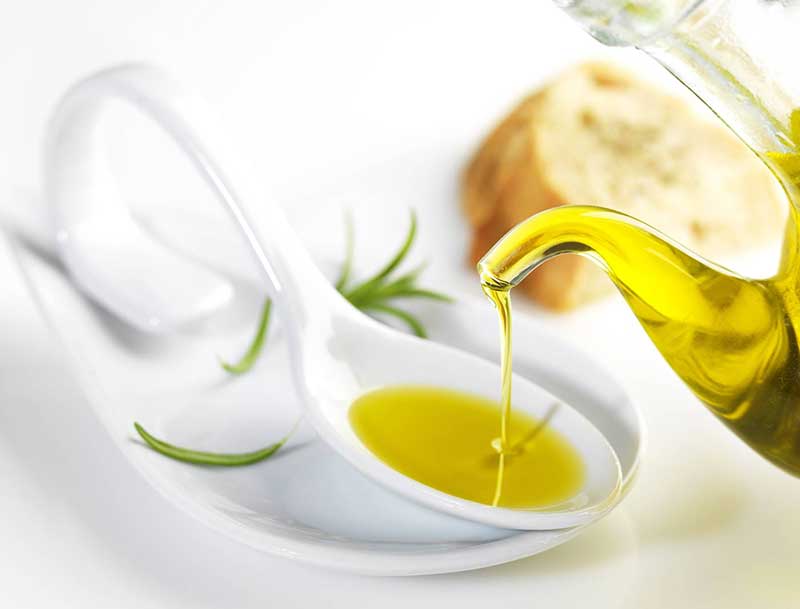Olive oil has been a staple in Mediterranean cuisine for centuries, but it’s popularity has spread worldwide due to its culinary versatility and health benefits. Understanding the nutritional value of olive oil is important in making informed choices about your diet and overall health. In this section, we will delve into the calorie content and nutrition facts of olive oil to help you better understand why it’s a recommended addition to your diet.
Key Takeaways:
- Olive oil is a popular cooking and dressing choice that offers numerous nutritional benefits.
- Understanding its calorie content is important for those aiming to manage their weight.
- The nutritional benefits of olive oil make it a heart-healthy choice.
- Extra virgin olive oil has a higher antioxidant content and potential health advantages compared to refined options.
- Incorporating olive oil into your daily diet can be done in various ways to maximize its benefits.
The Basics of Olive Oil Calories
As with any food, understanding the calorie content of olive oil is key to making informed choices about your diet. Whether you are trying to maintain a healthy weight or lose a few pounds, understanding the role of olive oil calories is essential.
On average, a single tablespoon (15 ml) of olive oil contains approximately 120 calories. This is similar to other healthy oils like avocado oil and coconut oil. However, it is important to note that all oils, including olive oil, are calorie-dense. This means that even healthy oils should be used in moderation.
The calorie content of olive oil varies slightly depending on the specific type. For example, extra virgin olive oil, which is made from the first pressing of olives and is considered the highest quality, contains roughly the same amount of calories as regular olive oil. However, other types, such as pure or light olive oil, may have a slightly lower calorie content due to their processing methods.
It is also worth noting that while olive oil is a healthy source of fat, it is still high in fat overall. One tablespoon of olive oil contains around 14 grams of fat. This is why it is important to use olive oil in moderation as part of a balanced diet.
The Nutritional Benefits of Olive Oil
Olive oil is not only delicious but also offers a rich source of nutrients that can support overall health and wellness.
One of the standout features of olive oil is its high content of monounsaturated fats. These healthy fats have been linked to a reduced risk of heart disease and other chronic conditions, making olive oil a heart-healthy choice.
Olive oil is also a rich source of antioxidants, which can help protect against cellular damage and reduce inflammation in the body. The antioxidants in olive oil are thought to offer a range of health benefits, from promoting healthy aging to reducing the risk of certain types of cancer.
Aside from its healthy fats and antioxidants, olive oil also contains various vitamins and minerals, including vitamin E, vitamin K, and iron. These nutrients can support various functions in the body, from maintaining healthy skin and bones to supporting immune function.
Incorporating olive oil into your diet can also offer benefits for digestive health. Olive oil has been shown to help promote healthy digestion and may even reduce the risk of digestive disorders such as ulcerative colitis and Crohn’s disease.
Overall, olive oil’s rich nutritional profile makes it a valuable addition to any diet. From its healthy fats to its antioxidant content, olive oil offers an array of benefits that can support overall health and wellbeing.
The Role of Olive Oil in Weight Loss
Olive oil is often associated with weight gain due to its high-fat content. However, research suggests that incorporating olive oil into a balanced diet may actually promote weight loss.
The type of fat found in olive oil, specifically monounsaturated fats, has been shown to increase feelings of fullness and satiety. This can lead to a decrease in overall calorie intake throughout the day, ultimately supporting weight management goals.
Additionally, the fat content in olive oil may also impact metabolism. Studies have suggested that consuming foods with healthy fats, such as olive oil, can support a healthy metabolism and aid in weight loss efforts.
It is important to note that while olive oil can support weight loss, it should be consumed in moderation. One tablespoon of olive oil contains approximately 120 calories, which can add up quickly if used excessively.
Incorporating olive oil into a balanced diet, paired with regular exercise, can be an effective tool in achieving weight loss and overall health goals.

Olive Oil: A Heart-Healthy Choice
Olive oil is not only a tasty and versatile ingredient in the kitchen, but it also offers numerous health benefits. One of the most significant benefits of olive oil is its potential to promote heart health.
Studies have shown that the monounsaturated fats found in olive oil can help lower LDL cholesterol levels, which can reduce the risk of heart disease and stroke. In addition, olive oil is a rich source of polyphenols and antioxidants, which have anti-inflammatory properties and can contribute to overall cardiovascular health.
But that’s not all – olive oil has been linked to a range of other health benefits as well. It has been shown to have potential anticancer effects, and it may help improve cognitive function and bone health.
When incorporating olive oil into your diet, it’s important to choose high-quality extra virgin olive oil whenever possible. This type of olive oil is less processed and retains more of its natural nutrients and flavor.
However, it’s also important to remember that olive oil is high in calories – a single tablespoon contains around 120 calories. To obtain the maximum nutritional benefits of olive oil without overdoing the calories, it’s recommended to use it in moderation as part of a balanced diet.
Extra Virgin Olive Oil: The Gold Standard
When it comes to nutritional value, extra virgin olive oil reigns supreme. Not only is it packed with heart-healthy monounsaturated fats and antioxidants, but it has a lower calorie content than most other cooking oils.
So just how many calories are in extra virgin olive oil? One tablespoon of extra virgin olive oil contains about 120 calories. Compared to other oils like coconut oil (120 calories per tablespoon) and avocado oil (124 calories per tablespoon), this is relatively low.
But it’s not just about the calorie content – extra virgin olive oil also contains a variety of important nutrients like vitamin E and vitamin K. Additionally, it has been associated with a range of health benefits, including reducing inflammation and improving brain function.
Choosing the Right Olive Oil
When it comes to choosing an olive oil, it’s important to look for the words “extra virgin” on the label. This means the oil was extracted from the olives without the use of heat or chemicals, preserving its nutritional value and rich flavor.
Additionally, opting for a cold-pressed oil can further ensure that the oil maintains its nutritional properties. It’s also worth noting that different brands of extra virgin olive oil can vary in flavor and quality, so it’s always a good idea to do some research before making a purchase.
| Oil Type | Calories per Tablespoon |
|---|---|
| Extra Virgin Olive Oil | 120 |
| Coconut Oil | 120 |
| Avocado Oil | 124 |
Overall, when it comes to choosing a cooking oil, extra virgin olive oil is a healthy and flavorful choice. With its moderate calorie content, high nutritional value, and potential health benefits, it’s a staple that should have a place in every kitchen.
Incorporating Olive Oil into Your Diet
Now that you know about the many health benefits of olive oil, you may be wondering how to incorporate it into your diet. Here are a few practical tips:
- Use olive oil as a cooking oil: Olive oil is a great substitute for butter or vegetable oils when cooking. You can use it to sauté vegetables, fry eggs, or roast meats and fish.
- Drizzle olive oil on salads: A simple way to add extra flavor and nutrition to your salads is to drizzle them with olive oil. Mix it with some balsamic vinegar for a delicious dressing.
- Serve bread with olive oil: Instead of butter, serve bread with a side of olive oil for dipping. Not only is it a healthier option, but it also adds a delicious flavor to the bread.
- Make pesto sauce: Pesto sauce is a popular Italian sauce made with olive oil, basil, garlic, and pine nuts. Use it as a spread on sandwiches, as a pasta sauce, or as a dip for vegetables.
Remember to use olive oil in moderation as part of a balanced diet. Its high calorie content means that excessive consumption can lead to weight gain, so it’s important to control your portions. However, by incorporating olive oil into your diet in healthy ways, you can enjoy its delicious flavor and numerous health benefits.
Conclusion
Olive oil is a flavorful and nutritious addition to any diet. By understanding the calorie content and nutritional benefits of olive oil, we can make informed choices about our health and wellness. Incorporating olive oil into our daily meals, whether as a cooking oil or dressing, can provide numerous health benefits such as reducing the risk of cardiovascular diseases and supporting weight management goals.
It’s important to note that moderation is key when it comes to consuming olive oil. While it offers a rich nutritional profile, it still contains calories and should be used in moderation as part of a balanced diet.
Enjoy the Taste of Olive Oil Responsibly
By incorporating olive oil into our diet responsibly, we can enjoy its delicious taste and reap the health benefits it offers. Whether it’s using extra virgin olive oil for its higher antioxidant content or drizzling it over salads for a healthy and flavorful dressing, there are numerous ways to incorporate olive oil into our daily meals.
So why not give it a try? You may just discover a new favorite cooking oil and improve your overall health and wellness in the process.
FAQ
Q: What is the nutritional value of olive oil?
A: Olive oil is rich in monounsaturated fats, which are considered healthy fats. It also contains antioxidants and vitamin E.
Q: How many calories are in olive oil?
A: One tablespoon of olive oil contains approximately 120 calories.
Q: How does the calorie content of olive oil compare to other cooking oils?
A: Olive oil has a similar calorie content to other cooking oils, such as vegetable oil and canola oil.
Q: Can olive oil help with weight loss?
A: Olive oil can support weight loss goals as it promotes satiety and can be incorporated into a balanced diet.
Q: What are the heart-healthy benefits of olive oil?
A: Olive oil has been associated with reducing the risk of cardiovascular diseases and maintaining healthy cholesterol levels.
Q: Is extra virgin olive oil healthier than other types of olive oil?
A: Extra virgin olive oil has a higher antioxidant content and is considered the highest quality olive oil.
Q: How can I incorporate olive oil into my diet?
A: Olive oil can be used as a cooking oil, drizzled over salads, or added to dips and dressings. It’s a versatile ingredient.
Q: Is olive oil a healthy choice when used in moderation?
A: Yes, olive oil can be a healthy choice when used in moderation as part of a balanced diet.



